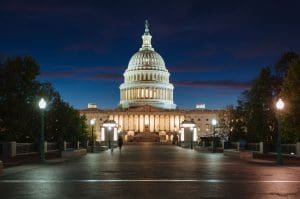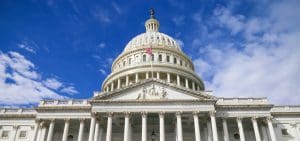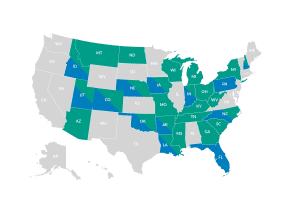Details and Analysis of the American Families and Jobs Act
Details and analysis of the latest House GOP tax plan, the American Families and Jobs Act. Learn more about the House Republican tax plan.
7 min readStudies show that when bonus depreciation is available, businesses respond by investing in more equipment and increasing employment, as they need more workers to operate the new equipment.

Details and analysis of the latest House GOP tax plan, the American Families and Jobs Act. Learn more about the House Republican tax plan.
7 min read
What does the tax reform package do well? What does it do poorly? How would it affect me?
4 min read

Lawmakers should focus on simplifying the federal tax code, creating stability, and broadly improving economic incentives. There are incremental steps that can be made on the path to fundamental tax reform.

By extending bonus depreciation and introducing neutral cost recovery, the RSC budget would significantly improve the treatment of investment leading to increased growth, expanded employment, and higher wages.
3 min read

The current tax treatment of R&D expenses is irrational, complicated, and counterproductive. Fortunately, fixing this problem is a bipartisan issue.
4 min read
Making expensing permanent is especially important now, when the economy is threatened with a recession and inflation remains high.
7 min read
As policymakers shift their focus away from tax rates and look to harmonize the EU’s corporate tax base, they should understand the benefits of full expensing.

By letting the corporate surtax expire, eliminating taxes on GILTI, and embracing full expensing, New Jersey would take important steps toward creating a more welcoming and competitive tax environment.
6 min read
As predicted, the Inflation Reduction Act’s misguided price-setting policy is already discouraging drug development. Rather than double down on it, as President Biden proposes doing in his budget, lawmakers ought to restore incentives to invest in the United States.
5 min read
Consistent principles ought to apply across the tax code. In the case of intangible drilling costs, companies should be able to claim full deductions for the costs they incur.
4 min read
The UK’s adoption of full expensing is a welcome step that may generate short-run economic benefits. However, for the reform to have a meaningful effect on the UK’s international competitiveness and long-run economic performance, it must be made permanent—which the British government has said it hopes to do.
6 min read
Adopting a distributed profits tax would greatly simplify U.S. business taxes, reduce marginal tax rates on investment, and renew our country’s commitment to pro-growth tax policy.
6 min read
With other states upping their game to attract ever-more-mobile people and businesses, lawmakers and the governor are not content to leave Tennessee’s business taxes in their current, uncompetitive form.
7 min read
At the end of 2022, prices were 14.6 percent higher than they were two years prior. That’s the fastest inflation rate over any two calendar years since the stagflation era of the late 1970s. State policymakers are understandably interested in bringing any tools at their disposal to bear on the problem. And many of them are reaching for tax policy solutions.
7 min read
Spreading deductions for research investments across five years instead of one is an innovation killer.

If bonus depreciation is allowed to phase out, then the tax bias against capital investments will increase, discouraging firms from making otherwise profitable investments.
14 min read
The tax treatment of research and development (R&D) expenses is one of the biggest issues facing Congress as the year winds down.
5 min read
In times of high inflation, states should consider adopting permanent full expensing because it boosts long-run productivity, economic output, and wages.
7 min read